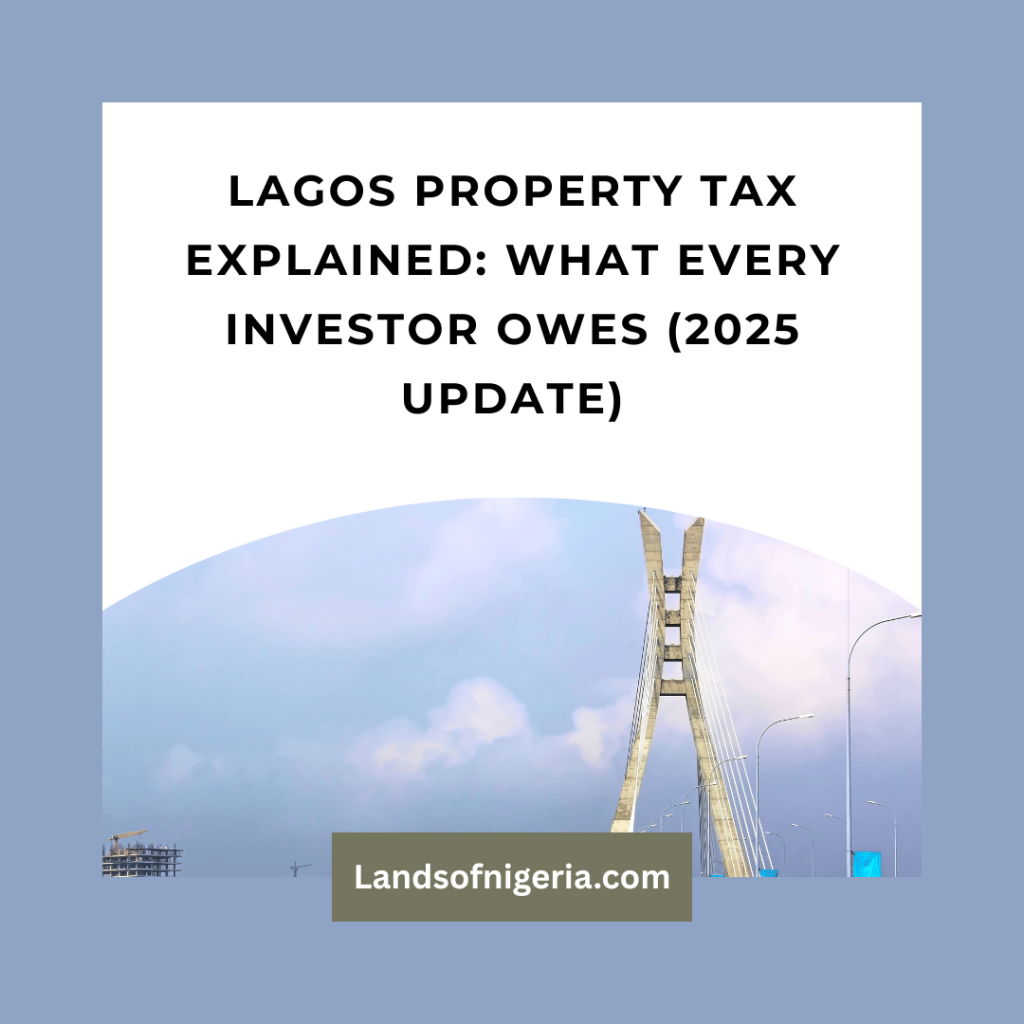If you own or plan to own real estate in Lagos, understanding how property tax works can help you avoid penalties and make smarter investment decisions. Despite the city’s booming real estate market, many investors—especially in the diaspora—are unaware of their property tax obligations. This blog post offers a simplified, 2025-focused breakdown of Lagos property tax: how it works, who pays, how much to pay, and what happens if you don’t.
🏘️ What is Lagos Property Tax?
Property tax in Lagos is a levy imposed by the Lagos State Government on real estate property owners. It is used to fund public services such as infrastructure, waste management, and environmental improvements.
In Lagos, property tax is legally referred to as the Land Use Charge (LUC), governed by the Land Use Charge Law of Lagos State (2018). It consolidates Ground Rent, Tenement Rate, and Neighborhood Improvement Levies into one payment.
📋 Who Pays the Land Use Charge?
Anyone who owns a property in Lagos—residential, commercial, industrial, or undeveloped land—is liable to pay the LUC. This includes:
- Individual homeowners
- Property developers
- Corporate entities
- Landlords renting to tenants
- Diaspora Nigerians who own or inherit property in Lagos
💡 How is the Tax Calculated?
The Land Use Charge is based on:
- Market Value of the Property
- Applicable Tax Rate based on the property type
- Reliefs or exemptions available to certain property owners
2025 Land Use Charge Rates:
- Owner-occupied residential: 0.0394% of the property’s value
- Industrial properties: 0.132%
- Commercial properties: 0.394%
- Vacant land: 0.076%
Example: If your residential property is worth N50 million, your LUC = N19,700 annually.
🎯 Where to Pay Your Property Tax
You can pay your LUC:
- Online via the Lagos State LUC portal
- At any commercial bank using your assessment number
- Through the Lagos Internal Revenue Service (LIRS)
After payment, you’ll receive a digital receipt for record-keeping.
🛑 What Happens If You Don’t Pay?
Failure to pay your Land Use Charge comes with:
- Penalties (ranging from 25% to 100% based on delay)
- Risk of property being sealed off by government authorities
- Legal actions or auctioning of the property
Pro tip: Always ensure your contact info is updated so you don’t miss assessment notifications.
🔍 How to Verify Your Property Tax Status
- Visit the LUC website
- Enter your Property ID or Assessment Number
- View your outstanding balance and history
You can also contact:
- LIRS customer care: 0700-CALL-LIRS
- Or visit a local tax office in your area
🧾 Tax Reliefs and Exemptions
Certain categories of property owners may qualify for reliefs:
- 70+ years old homeowners (exemption)
- Pensioners (exemption)
- Low-income earners (partial relief)
- Early payment discount (15-20% if paid early in the year)
🔑 Final Tips for Investors
- Factor LUC into your annual investment budget
- For leased property, include it in tenant agreements (if applicable)
- Always keep payment receipts for legal backup
- Use a local property lawyer or agent to monitor changes
✅ Final Thoughts
The Lagos property market is lucrative, but staying compliant with property tax laws is essential for long-term success. Now that you understand how property tax works, you’re better equipped to make profitable and responsible investment decisions.




